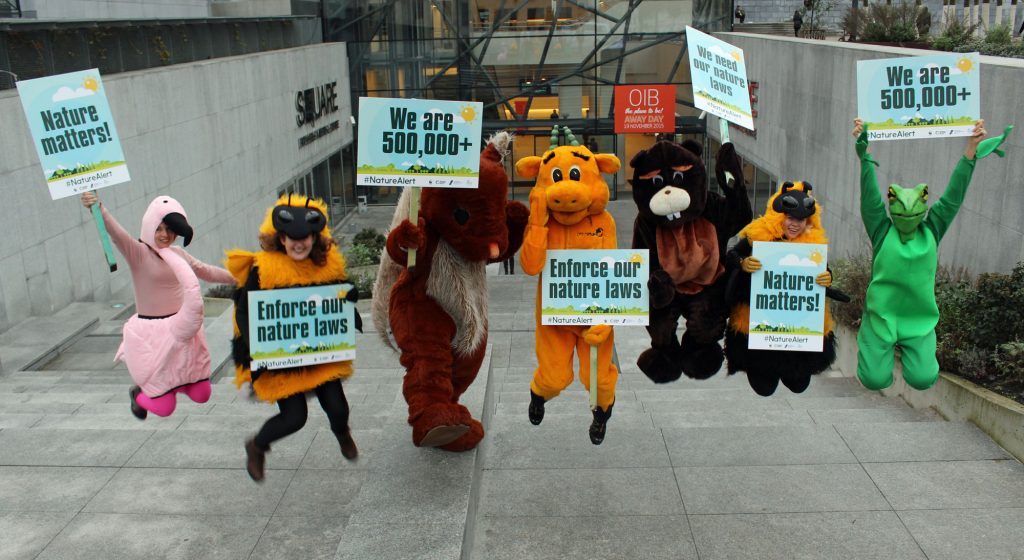Representatives of the more than half a million EU citizens who signed the #NatureAlert campaign, flanked by giant animals, handed over a colourful ‘cheque’ to EU Environment Commissioner Karmenu Vella this morning, calling on him to save and enforce vital EU nature protection laws.
Members of the public, representing the biggest-ever response to an EU Commission consultation, were joined by a giant bee and a beaver to hand over the cheque outside a key conference for the future of EU nature legislation.
Robbie Blake, biodiversity campaigner at Friends of the Earth Europe, said “The public support for saving and implementing our strong nature laws is deafening. A record half a million people plus scientists, MEPs, businesses, and 10 governments, have raised their voices for strong nature protection – they are too big to ignore.
“A thriving natural world is crucial for everybody’s health and wellbeing, so Commissioner Vella must ensure Europe’s nature protections are properly put into practice – not watered down in the name of cutting red tape.”
A number of other giant, brightly coloured animals – a squirrel, a flamingo, an ibex and a frog, all examples of threatened EU wildlife –also made their way to Brussels by Eurostar, telling Commissioner Vella “we need our nature laws”.
The handover took place outside a conference to review the future of EU nature protection. Over 400 business people, government and EU representatives, and environmentalists from around Europe came together to discuss whether the EU’s Nature Directives are fit to achieve the goal of preserving Europe’s nature, or whether they should be rewritten – as part of a so-called ‘Fitness check’.
Preliminary findings of a European Commission review show Europe’s nature laws are the right tool to protect Europe’s nature. A record half a million citizens called for the laws to be saved and implemented, and not rewritten. [3] The cause was also backed by governments from 10 EU countries, including Spain, Italy, Germany and France. Aside from the unprecedented public and governmental support, there is strong evidence that the nature laws work well in practice, but need better funding, implementation and enforcement.







